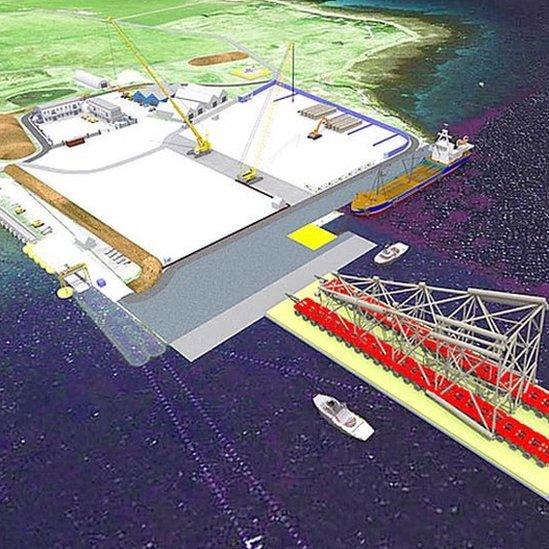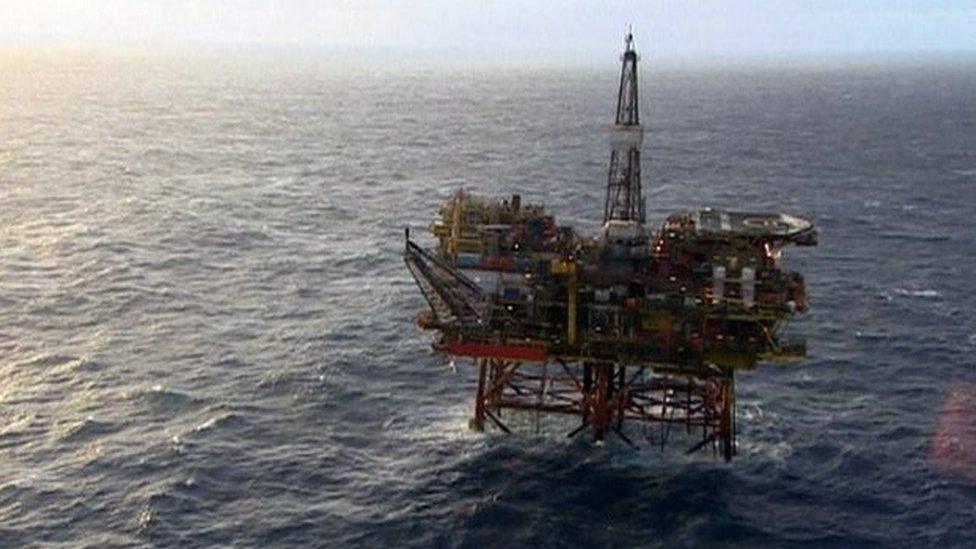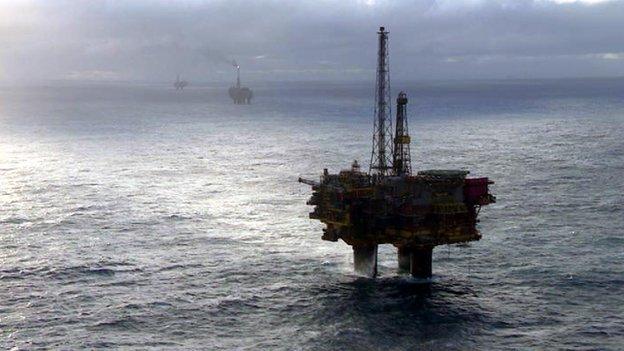Plans for Orkney oil and gas decommissioning site unveiled
- Published

An image of how the site could look has been released
A demolition company has unveiled plans to create a facility in Orkney to decommission redundant oil and gas rigs.
Birmingham-based DSM is hoping to use Lyness on Hoy as a new base.
The project could create scores of jobs, as spin-off work for local contractors and income for Orkney Islands Council which owns the site.
Council convener Steven Heddle said: "This project has the potential to create significant employment."
'Ideally located'
Describing what would happen to a rig, DSM's Graham Crowe told BBC Scotland: "It comes out of the North Sea in a clean condition, it is floated to Lyness, we bring it onshore and we could reduce it to parts that can be recycled and go off to third world oilfields, or it's completely cut up, effectively as scrap to be recycled and used again."

Council convener Mr Heddle explained: "There will be a growing demand for oil and gas decommissioning facilities in the years ahead.
"Lyness and the natural deep-water harbour of Scapa Flow, with their location close to the North Sea, are ideally located to serve as a potential base for work of this kind.
"We now look forward to working with the company.
"Our priorities will be to ensure that Orkney benefits economically and that a development of this type is approached in an environmentally responsible manner, in order that we maintain our excellent track record for stewardship of our local environment and the seas around us."
The company, councillors and council officials discussed the project at a meeting of the Graemsay, Hoy and Walls Community Council on Tuesday night.
'New begining'
WWF Scotland director Lang Banks said: "It's been estimated that 285 platforms and over 4,000 oil and gas wells will require to be removed from UK seas over the coming decades, leading a new multi-billion pound decommissioning industry.
"While this particular proposal will of course have to go through all the appropriate planning procedures, with the right kind of support from politicians, Scottish island and coastal communities could secure a big slice of the jobs that will come from cleaning up after the North Sea oil and gas industry.
"In the interests of tackling climate change, science tells us we cannot burn all the oil and gas that remains under the sea. Instead, we need to see a sensible transition away from fossil fuels, harnessing the skills of those currently employed in the sector in clean energy technologies as well as decommissioning.
"If done right it herald the start of a whole new chapter in the economy of the North Sea."
A major offshore conference in Aberdeen heard last year that decommissioning could be a new beginning for the industry.
It was projected that, over the next 25 years, the process of retiring North Sea oil and gas facilities could cost tens of billions of pounds.
It could mean hundreds of new jobs requiring a new kind of expertise in the coming decades.
- Published28 May 2015
